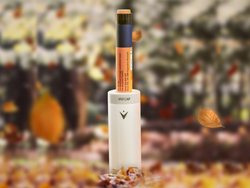Tempramed Blog
Understanding your morning hypoglycemia- become a detective, gather the evidence

We try hard to get it right, but sometimes our blood sugar levels get away from us. The trick is to figure out why we have a high number so we can fix the problem. Yes, I know all too well this can be easier said than done, and in fact on some days, there is no rational explanation for a random high blood sugar level. Let’s explore some ways we can understand blood sugar readings in the morning and how they can be addressed.
Two possible reasons for high fasting blood sugars are —the dawn phenomenon (which occurs only in the morning) and the Somogyi effect (which can occur anytime during the day or night).
The dawn phenomenon is a normal physiologic response in our bodies, which results in a surge in blood glucose to prepare energy for the next day. The liver stores fuel in the form of glucose, and while we sleep, hormones are released that signal the liver to release stored glucose. These hormones include cortisol, epinephrine, growth hormone, and glucagon, just to name a few. Sex hormones released during puberty also cause this to happen, which is why many teenagers with diabetes need insulin and/or medication adjustments during puberty to help control blood sugar levels. The dawn phenomenon does not adversely affect blood sugars for individuals without diabetes. But for patients with diabetes, this excess glucose production can cause high morning blood sugar readings.
Although the Somogyi effect can occur anytime, it is similar to the dawn phenomenon in that the body is reacting to an imbalance in blood sugar levels. The Somogyi effect differs from the dawn phenomenon in that it is often more extreme and attributed to insulin or diabetes pills working too strongly or at the wrong time. It occurs frequently in the middle of the night. If you have a really low blood sugar at 2 a.m., for example, your internal sensors try to keep blood sugar levels up as best as they can. The liver goes into action pushing glucose out in an attempt to adjust for this hypoglycemia and to regain balance. In a person without diabetes, the blood sugar levels would return to a balanced state. But for a person with diabetes, the resulting rush of glucose into the bloodstream causes hyperglycemia that remains high. with not enough insulin available to counteract this affect. Blood sugars remain high in part by not enough insulin to counter this surge, but also because you are often still digesting the contents of your evening meal throughout the night, and with no insulin on board to balance this, blood sugar levels climb even higher. This pattern of undetected hypoglycemia followed by hyperglycemia is called the Somogyi effect.
Before you get too excited, never assume that you can fix this imbalance with extra medication or insulin; that would be a dangerous assumption. And do not think that skipping breakfast will correct the situation if you have frequent high morning blood sugar levels. Never skip meals without the okay from your healthcare team. Eating actually turns off the counter-regulatory system in the liver.
To determine if the dawn phenomenon, the Somogyi effect, or something else is responsible for your morning hyperglycemia, you need to do some detective work. Gather the evidence. Ask the following questions:
- Have you had high fasting blood sugar levels for several days in a row? Check your blood glucose between 2 and 3 a.m. to determine if you have a trend of low blood sugar levels.
- Has your exercise program changed—the time during the day when you exercise or the intensity of your workout or the type of exercise you do?
- Have you started any new medications? If so, are they known to contribute to hyperglycemia?
- Are you ill, or have you recently recovered from illness? Any illness or injury has the capacity to increase blood sugars.
- Have your eating habits changed? For example, are you eating dinner later than you normally did?
- Has your work schedule changed? For example, are you now on the night shift where before you worked during the daytime?
- Has anything else changed in your life, especially something that might be contributing stress to your life? (See the following section, “Stress and Blood Sugar Levels” for more about this.)
You will notice that all but the first question deal with changes. Be thorough in your evaluation. For example, the category of exercise involves more than just workouts at the gym. Consider the fuller picture of your activities throughout the day. Maybe with nice weather you started gardening or walking in the evening. If you had a sudden change in your energy output, your insulin needs may go down.
New medication can also cause lower blood glucose readings. For example, the family of antibiotics called quinolones (which includes levofloxacin) can cause lower than normal blood sugar levels in some patients. (1) Other drugs do this as well, and it’s important to check with your pharmacist to make sure your prescriptions unrelated to diabetes won’t affect your blood sugar levels. If any can, you need to take precautions and check your blood glucose more frequently or ask your doctor if an alternative medication can be substituted.
If you are recovering from an illness, your blood sugar levels may start to come down quickly, so you need to also be aware of this.
However, the most important piece of evidence you can accumulate for this detective work is the blood sugar testing between 2 and 3 a.m. If you have a very low reading at this time (your doctor will define the range for you), it is likely you may need to eat a more substantial dinner or snack, or perhaps your healthcare team will reduce your insulin or medication. The cause of your early morning low blood sugar levels might be not eating enough at dinner, exercising without adequate snacking, or even adding a new drug to your regime. Exercise can affect blood sugar levels for twenty-four hours or more, and regular exercise recently added to your routine will affect blood sugar levels. (2)
When you fix the lows, your counter-regulatory system will stay quiet thinking all is well and will not release so much sugar from the stored energy in the liver.
If you see a very high number (here, too, your healthcare team will give you a range, usually over 200), this is a good indication you may be experiencing the dawn phenomenon. But you need to consider also all the other factors mentioned above, which are all changes—in medications, illness, eating habits, exercise, work schedule, and other. If none of those changes applies to you, then you are likely dealing with the dawn phenomenon.
If you identify the dawn phenomenon as the likely cause of your high morning blood sugar levels, discuss your options with your healthcare team. They might suggest increasing insulin doses (usually basal first), increasing exercise, or changing something about your meals (the time, types of food, etc.). Besides adjusting your eating or basal insulin dosages, you can treat high fasting blood sugar levels with other treatment modalities. One of the most common drugs used to treat diabetes is metformin. This drug works by keeping the liver from producing too much glucose. This often helps patients with type 2 diabetes and is generally well tolerated. Metformin can cause some stomach issues and is often associated with weight loss, which can be a bonus.
If you have frequent high morning blood sugar levels, you may be tempted to skip breakfast. Don’t! Always check with your healthcare team. Remember eating turns off the counter-regulatory system in the liver, and breakfast will jump start the metabolism.
Don’t forget that at TempraMed we are here to protect you and your insulin and to keep you safe.
2. http://www.diabetes.org/food-and-fitness/fitness/get-started-safely/blood-glucose-control-and-exercise.html




